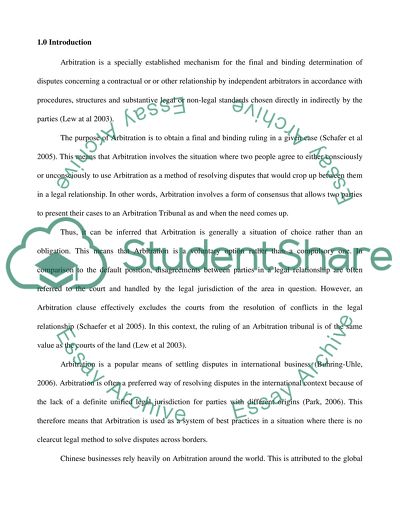Cite this document
(“The Study of the Relationship between Illegality and International Research Proposal”, n.d.)
Retrieved from https://studentshare.org/law/1395362-the-study-of-the-relationship-between-illegality-and-international-commercial-arbitration-with-a-focus-on-china
Retrieved from https://studentshare.org/law/1395362-the-study-of-the-relationship-between-illegality-and-international-commercial-arbitration-with-a-focus-on-china
(The Study of the Relationship Between Illegality and International Research Proposal)
https://studentshare.org/law/1395362-the-study-of-the-relationship-between-illegality-and-international-commercial-arbitration-with-a-focus-on-china.
https://studentshare.org/law/1395362-the-study-of-the-relationship-between-illegality-and-international-commercial-arbitration-with-a-focus-on-china.
“The Study of the Relationship Between Illegality and International Research Proposal”, n.d. https://studentshare.org/law/1395362-the-study-of-the-relationship-between-illegality-and-international-commercial-arbitration-with-a-focus-on-china.


